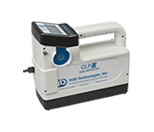Gas leaks can happen in a variety of industrial situations, given the extreme amounts of flammable gases and substances that are involved in this operations. Gas leaks can occur at onshore oil and gas terminals, exploration drilling rigs, production platforms and refineries, to name a few. Gas leaks pose extremely dangerous emergencies, putting workers at risk. This is why it is so important to know the signs of a gas leak so you can vacate the premises and contact someone to repair the leak. Gas leak detection equipment can also help you head off danger by alerting you to the presence of flammable hydrocarbon gasses and toxic substances such as hydrogen sulphide and carbon monoxide. Here are a few common warning signals that there may be a gas leak in a refinery or oil rig.

Sulfur or Rotten Egg Smell
Natural gas and propane both have very distinct smells that are easy to recognize and detect. Utility companies put an additive named mercaptan in the otherwise odorless gas that gives off the identifiable scent. Look out for the smell of sulfur, rotten eggs, or sewage in your place of work, specifically around gas lines.
White Mist
A cloud of white fog or mist at your oil or gas refinery is usually a sign of a ruptured gas line. If you notice this, be sure to call the gas company as soon as possible to address the problem and maintain safety for your staff.
Hissing Noise
Hissing noises are not good, especially near your gas lines at an oil or gas facility. This is another common signal of a gas leak, and it’s important to keep in mind that hissing sounds typically indicate a larger and more severe leak. If you hear hissing, leave the property and contact the gas company immediately. The faster someone can arrive, the better.
Dead Plants
Gas lines that are under soil can also leak. Check around the property perimeter of your refinery for patches of dead grass and vegetation. There may be a leaking pipe underneath the ground in that area. Contact a professional to use gas leak detection equipment to be sure whether or not there is a leak. It’s better to be proactive, especially at gas and oil facilities where there are so many flammable and toxic gases in the mix.
Detection devices
If you suspect a gas leak, the most important thing to keep in mind is the safety of all people on the premises. Company management needs to be able to detect a problem before it becomes a physical danger, so gas leak detection equipment is a worthy investment. Portable units can be purchased for each employee, which is an excellent choice for those working on a rig or refinery. Depending on the setup of your facility, an automated system that does a systematic building sweep is another good option.
Physical Symptoms
If there is a gas leak in an industrial facility, look out for workers experiencing physical symptoms. These include dizziness, trouble breathing, fatigue, feeling lightheaded, headaches, nausea, and more.






